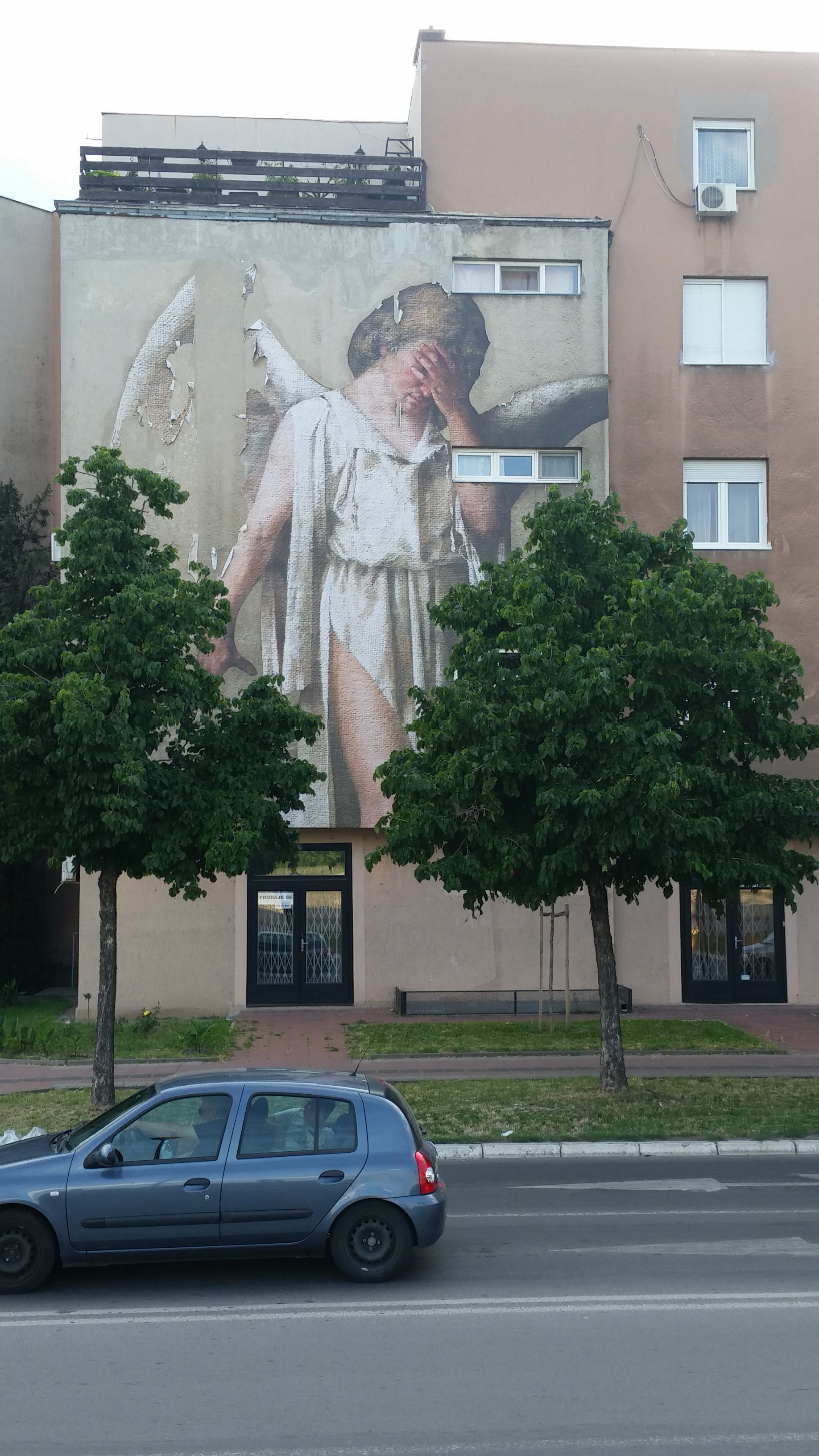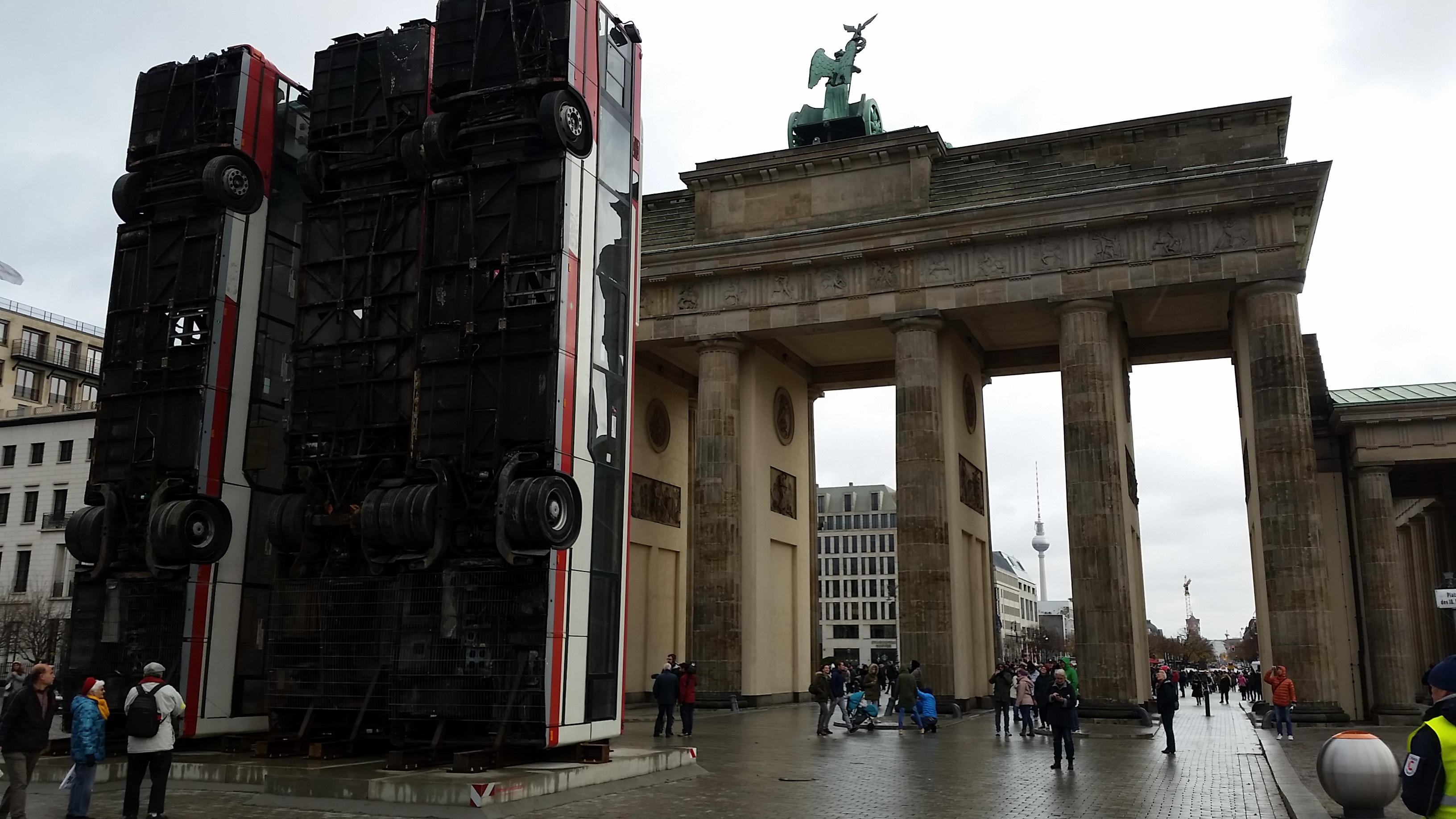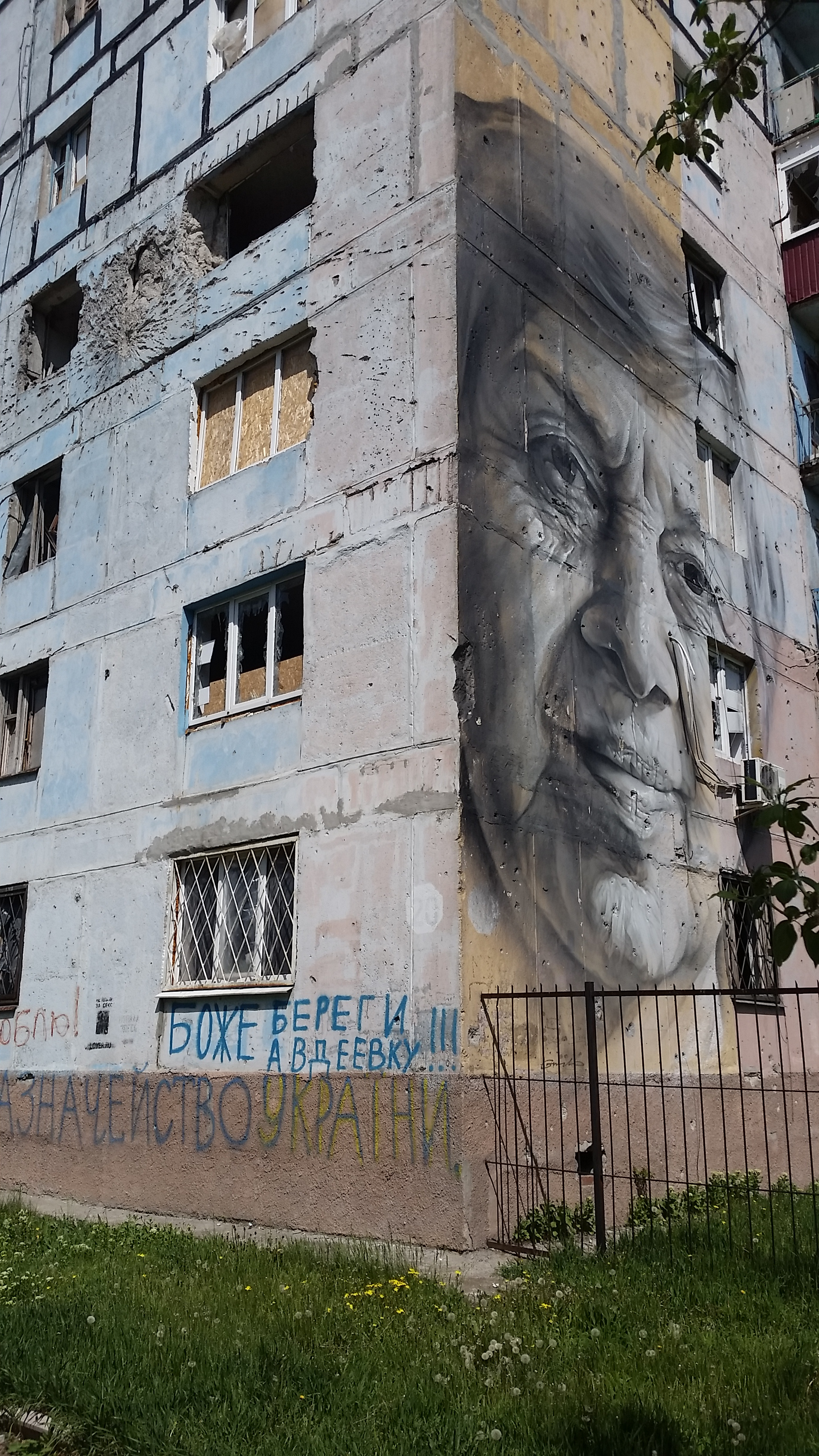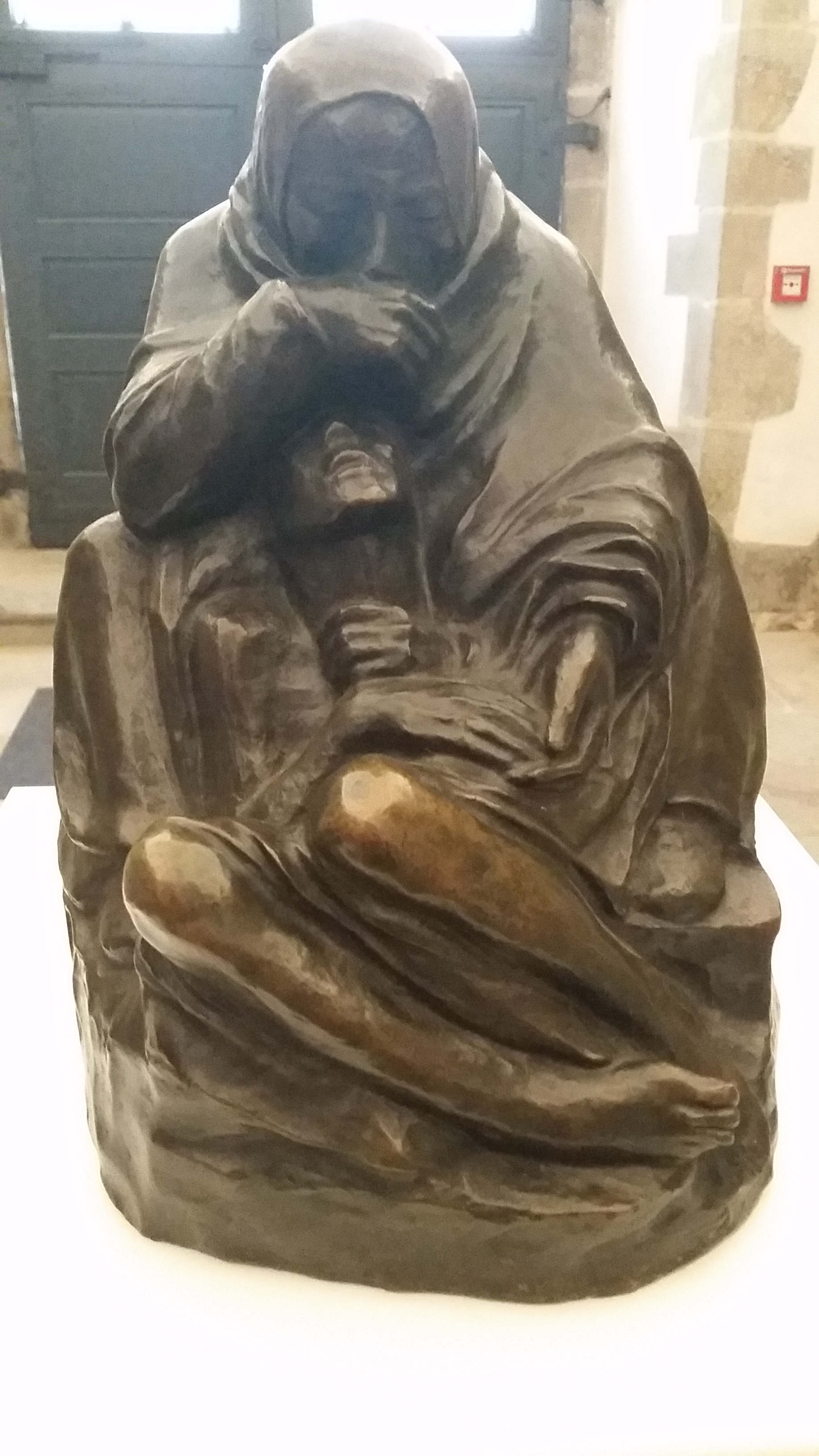A Letter from Burkhard Paetzold, serving as regional liaison for Central and Western Europe and Facilitator of work with the Roma people, based in Germany
April 2019
Write to Burkhard Paetzold
Individuals: Give online to E200392 for Burkhard Paetzold’s sending and support
Congregations: Give to D506900 for Burkhard Paetzold’s sending and support
Churches are asked to send donations through your congregation’s normal receiving site (this is usually your presbytery)
Dear Friends,
First, I want to thank you for all of your prayers and support. I regret that I can’t be in touch with all of you personally. But I want you to know that I’m very grateful for each of you.
In 2019, Psalm 34 — “Seek peace and pursue it” — is the guiding verse in German Protestant churches.
Soon we will celebrate the 30th anniversary of the peaceful revolution. In 1989, hundreds of people repeatedly gathered in East German churches for peace prayers. The slogan in our demonstrations was “Keine Gewalt!” (No violence!) This imperative called not only for non-violence among demonstrators and the police, but also for peaceful relations among the Eastern and Western Blocs in those times of change.
Most people tend to forget that one of the triggers for the peaceful change in Central Europe was the unifying power of non-violence and peace movements. I wrote about this in my December 2017 Mission Connections letter, “Risking Peace.”
Let me tell you a true story. Right after midnight on September 26, 1983, an officer of the Soviet Air Defense forces near Moscow, Stanislav Petrov, received a warning that a long-range missile with a nuclear warhead had left its silo in Montana and would hit its target in the Soviet Union in 28 minutes. According to Soviet doctrine, this called for a nuclear counterattack before the missile hit the ground and destroyed Soviet nuclear capabilities. Military protocol required Petrov to report the warning to his supreme command immediately. The expected course of action would be to launch Soviet missiles to totally destroy U.S. territory.
What should he do? Time was running out — soon the U.S. missiles would hit Soviet territory. This was the hardest decision imaginable. He soon received four more warnings about other missiles.
But he did not call the supreme command. And it turned out to be a false alarm.
Not until after the Cold War was Petrov able to speak about it. His story was portrayed in the movie “The Man Who Saved the World.” He explained that he did not trust the computers, nor did he did trust the plan’s ill logic. Although in the eighties we didn’t know of this imminent catastrophe, since the advent of nuclear weapons this sort of nightmare has always been on our minds. The “logic” of deterrence says, “War is not an option anymore.” If a launched long-range intercontinental missile left 28-minutes of warning time, there would be time enough for a counterattack. Surely no one would be foolish enough to initiate an attack. But it is simple math to imagine that intermediate missiles in Europe allow only a few minutes warning time and might give an advantage to he who attacks first. This dynamic increases nervousness, as does the role of computers in the process.
Fortunately, in 1988 U.S. President Reagan and Soviet President Gorbachev signed the Intermediate-Range Nuclear Forces Treaty (INF Treaty). Europe celebrated this huge success, hoping for further disarmament. The Cold War seemed to be over. Now, 31 years later, both the U.S. and Russian presidents have withdrawn from the INF Treaty, and there is a threat, not only that these two nuclear powers will modernize their nuclear weapons arsenal, but that other nuclear powers will feel threatened and may follow. And all might do so not only for deterrence, but for easier execution or — another frightening scenario — for an increasing dependency on automated computers. All of these nations might become involved in the vicious circle of a new arms race with all its consequences.
Christian peace initiatives in Germany call for intensified negotiations. And they repeat their request to the Church for a clear and prophetic word against nuclear weapons.Several member churches of the EKD — a federation of the vast majority of Protestant churches in Germany — have voted for an amendment to the German constitution banning nuclear weapons and withdrawing them from German territory. The EKD assembly as a whole seeks to speak with one voice against fearmongering and military solutions.
Let’s look at Psalm 34 again. Important verses precede verse 14. The Psalm doesn’t start with a request like “don’t do evil, do good, seek peace.” If it did, everyone would respond. But this would be wishful thinking.
No, the Psalm starts by gratefully praising God. Verse 4 says, “I sought the LORD, and he heard me, and delivered me from all my fears.”And verse 8 promises, “The angel of the LORD encampeth round about them that fear him, and delivereth them.”
It’s about God’s good creation. Since I am entrusted to God’s care, since God has done good to me, I can do good. Since God has comforted me, I can walk God’s path with confidence, even if the whole world seems to do it differently. Since God holds me, I can let go of the evil. Finally, since God has brought peace into my life, I can bring about peace.
Not only do our war machines draw us into a spiral of waging war, but the production of weaponry causes irreparable damage to God’s creation. As an example, during the Cold War period it was an open secret that uranium mining happened in former East Germany — initially part of reparation payments to the Soviet Union after World War II. East German peace and environmental activists discovered immense radioactive pollution and deadly illnesses among many miners. After unification, Germany took over clean-up of the contaminated mines and surrounding environment. So far, this has cost several tens of billions of Euros, and it will be an everlasting task.
I’m sure these are not the only uranium mines in the world, that the situation is very similar in other countries, including the U.S. And it’s not only about environmental damage, but such nuclear activities have stolen tax money from social and health programs for the poor.
When looking back at reasons for war or war propaganda, it seems as if our Christian forbears — much like many Christians today — didn’t look into the Bible. We here in Europe recently celebrated the centennial of the end of World War I. In the 20th century, World War I propaganda was loaded with religious images disparaging the enemy. Religion was misused to define “hereditary enmities.”
And today too many follow the populist pied pipers and fall back into nationalist schemes of “my country first.” We should be aware that such mindsets create predispositions for seeking military solutions to political and socioeconomic problems. We cannot only seek peace — each of us must pursue it with every fiber of our hearts.
My colleagues Ellen Smith, regional liaison for Eastern Europe, and Carl Horton of the Presbyterian Peacemaking Program have organized a peacemaking study trip to Ukraine and Russia that will take place after Easter. During the seminar, participants will learn what Christians and churches are doing to seek and pursue peace between the two nations. I will take part in the Ukraine part of this trip.
In September and October, Arlington Trotman from the UK, former moderator of the Church’s Commission for Migrants in Europe (CCME), is invited to be one of the International Peacemakers. Feel free to extend an invitation to him or one of the other peacemakers to visit your church or group.
During March and April, I have been in the U.S. In addition to participating in the Czech Mission Network meeting in Atlanta, GA, I have visited the PC(USA) National Headquarters in Louisville, KY, and have spoken at churches in New Mexico and Missouri.
Thank you again for your support. I would appreciate your continued support through prayer, encouragement and financial contributions.
Peace and blessings to you in this time of Lent.
Burkhard
![]() You may freely reuse and distribute this article in its entirety for non-commercial purposes in any medium. Please include author attribution, photography credits, and a link to the original article. This work is licensed under a Creative Commons Attribution-NonCommercial-NoDeratives 4.0 International License.
You may freely reuse and distribute this article in its entirety for non-commercial purposes in any medium. Please include author attribution, photography credits, and a link to the original article. This work is licensed under a Creative Commons Attribution-NonCommercial-NoDeratives 4.0 International License.



